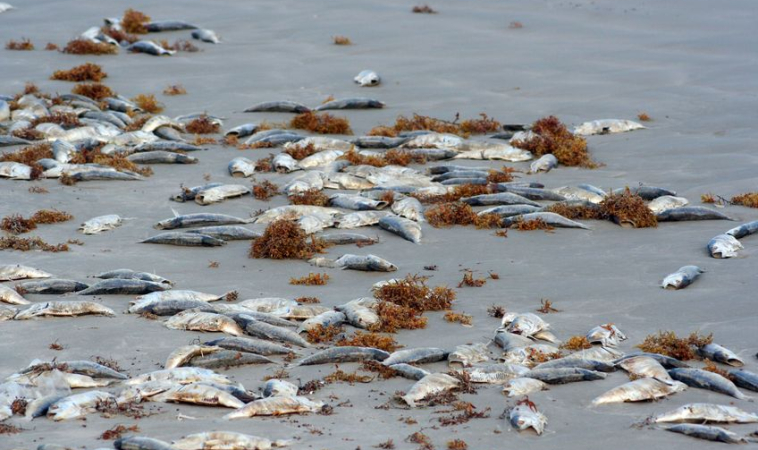Some sunblock ingredients washed from people’s skin into the ocean are reacting with ultraviolet light to create toxic chemicals that harm marine life.
The titanium dioxide and zinc oxide nanoparticles, common ingredients in sunblock, form new compounds such as hydrogen peroxide when they are exposed to ultraviolet light, which harms phytoplankton, says a study published in the July edition of Environmental Science & Technology.
Antonio Tovar-Sanchez, of the Mediterranean Institute for Advanced Studies, and David Sánchez-Quiles, of the Department of Ecology and Coastal Management at the Andalusian Institute for Marine Science, both in Spain, conducted the study that shows a direct and negative impact on coastal waters with detrimental consequences on the ecosystem.
They conducted the study by visiting Palmira Beach on Majorca Island on the Mediterranean, where about 200 million tourists go to enjoy the sea. Seawater sampling during the tourist season showed high levels of sunblock-caused toxin spikes that potentially are dangerous to plankton, a major food source for some marine life.
Dr. Jillian Finker, ND, said the natural way to protect skin from harmful sunlight is to make sure they are taking oral preventative measures such as good fish oil and trace minerals magnesium and iodine along with anti-oxidants.
Finker, who practices at Finker Wellness, Inc., in Bellmore, New York, said “We try to tell patients not to burn, to try to stay in the shade if possible. We only tell patients to use sunscreen when it’s absolutely necessary.”
http://pubs.acs.org/doi/abs/10.1021/es5020696
















